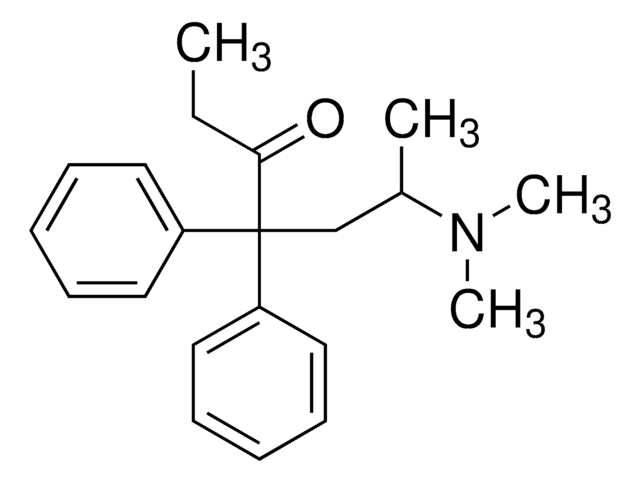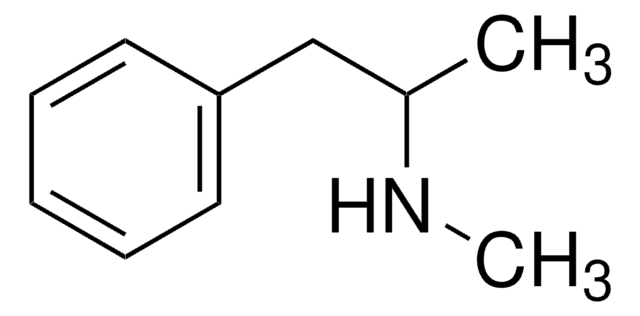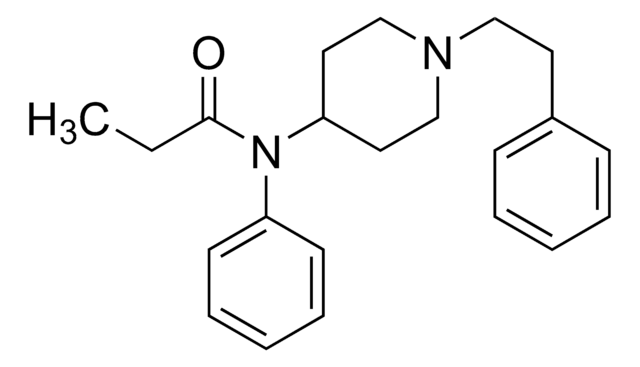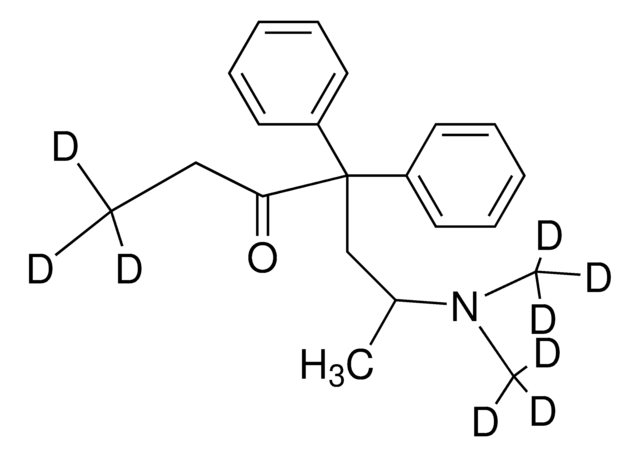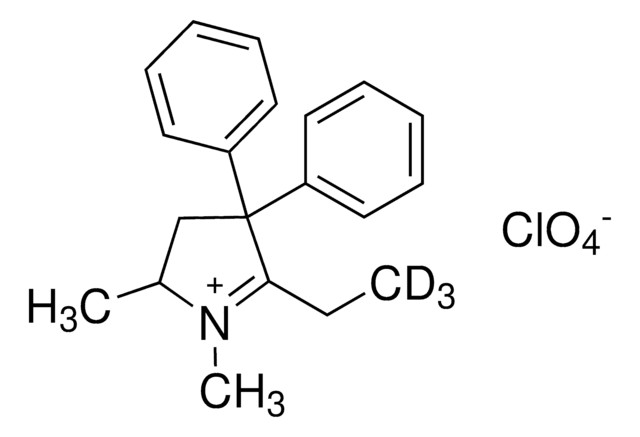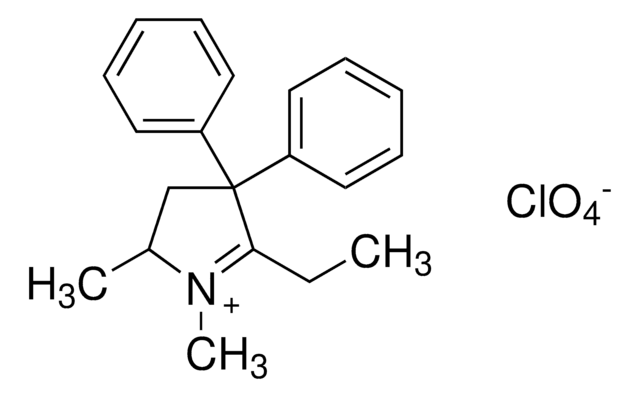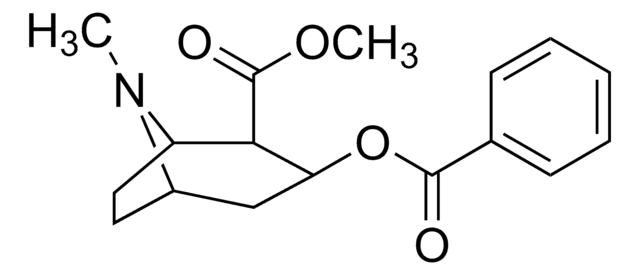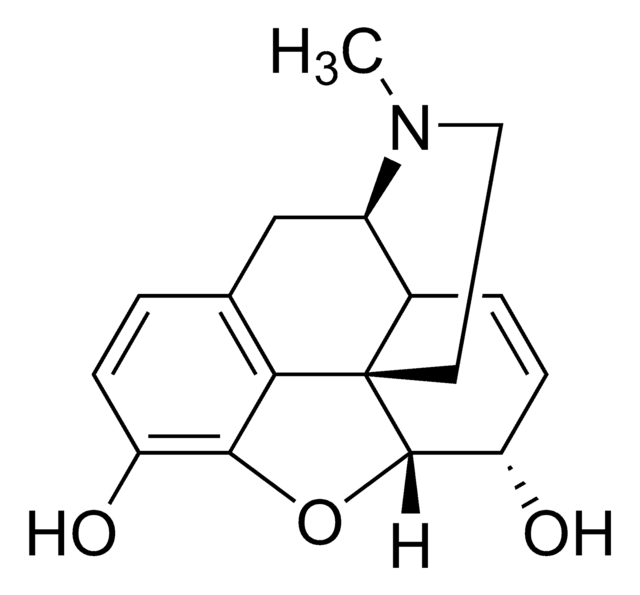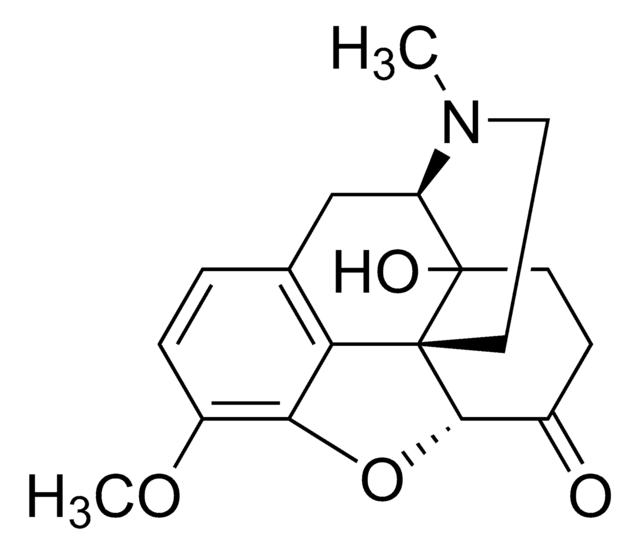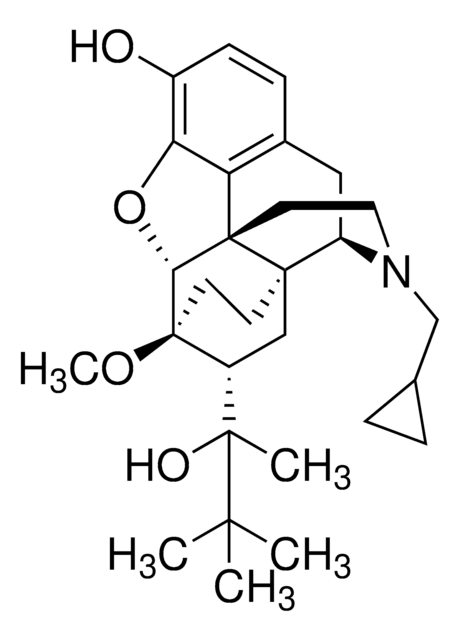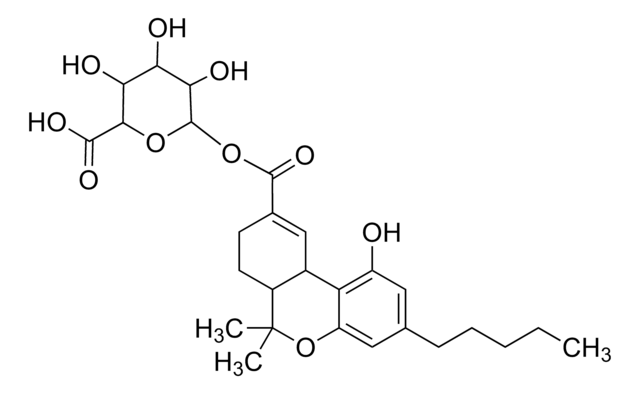E-022
EDDP perchlorate solution
1.0 mg/mL in methanol (as pyrolinium), ampule of 1 mL, certified reference material, Cerilliant®
Synonym(s):
Methadone metabolite
About This Item
Recommended Products
grade
certified reference material
Quality Level
form
liquid
feature
Snap-N-Spike®/Snap-N-Shoot®
packaging
ampule of 1 mL
manufacturer/tradename
Cerilliant®
concentration
1.0 mg/mL in methanol (as pyrolinium)
technique(s)
gas chromatography (GC): suitable
liquid chromatography (LC): suitable
application(s)
forensics and toxicology
format
single component solution
storage temp.
−20°C
SMILES string
C[N+]1=C(CC)C(C2=CC=CC=C2)(C3=CC=CC=C3)CC1C.O=Cl(=O)([O-])=O
InChI
1S/C20H24N.ClHO4/c1-4-19-20(15-16(2)21(19)3,17-11-7-5-8-12-17)18-13-9-6-10-14-18;2-1(3,4)5/h5-14,16H,4,15H2,1-3H3;(H,2,3,4,5)/q+1;/p-1
InChI key
FICCBMGBBWWZRF-UHFFFAOYSA-M
Looking for similar products? Visit Product Comparison Guide
General description
Legal Information
related product
Signal Word
Danger
Hazard Statements
Precautionary Statements
Hazard Classifications
Acute Tox. 3 Dermal - Acute Tox. 3 Inhalation - Acute Tox. 3 Oral - Flam. Liq. 2 - STOT SE 1
Target Organs
Eyes
Storage Class Code
3 - Flammable liquids
WGK
WGK 2
Flash Point(F)
49.5 °F - closed cup
Flash Point(C)
9.7 °C - closed cup
Choose from one of the most recent versions:
Certificates of Analysis (COA)
Sorry, we don't have COAs for this product available online at this time.
If you need assistance, please contact Customer Support.
Already Own This Product?
Find documentation for the products that you have recently purchased in the Document Library.
Customers Also Viewed
Our team of scientists has experience in all areas of research including Life Science, Material Science, Chemical Synthesis, Chromatography, Analytical and many others.
Contact Technical Service